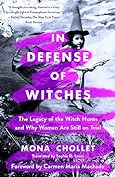More on this book
Community
Kindle Notes & Highlights
by
Mona Chollet
Read between
July 30 - August 8, 2023
She discerns here a manifestation of the “deeply embedded tendency in our society to hold women ultimately responsible for the violence committed against them.”
capitalism is always engaged in selling back to us in product form all that it has first destroyed.
“Life” does not inspire them to action except when it comes to wrecking women’s lives. A pro-birth policy is about wielding power, not about care for humanity.
“Pretending to be young and being young are two different things, and anyone who looks closely will know the difference,” as Anne Kreamer notes.61 There is something perverse in making women run a race that they’ve all already lost.
Faced with a doctor, we are always in a position of weakness: because we are suffering with a more or less serious condition, which may kill us; because the doctor has knowledge we do not have and, if anyone has the power to save us, it is the doctor;75 and because we are in bed and the doctor is up on his feet, as Desproges pointed out. But this position of vulnerability ought to mean that the doctor shows some basic courtesy, not that the sick person has to suck it up.
In conclusion, he gives his blessing to a logic that he sums up with the maxim: “Killing the women of the past to create the men of the future.”115 And, in doing so, Bechtel shows, once again, that historians of the witch-hunts are themselves products of the world that hunted the witches, and that they remain locked inside the frame of reference that the witch-hunts created.
Bechtel’s point of view is a stark contrast to the very different views of Barbara Ehrenreich and Deirdre English, who describe not only individual tragedies—the quashed aspirations and broken spirits of the hunts’ victims—but also all that society denied itself by outlawing them, all that these women were prevented from developing and passing to future generations. Ehrenreich and English speak of “the sheer waste of talent and knowledge” represented by the witch-hunts, and urge us to undertake the “important task […] of recovering, or at least pointing out, what was lost.”


